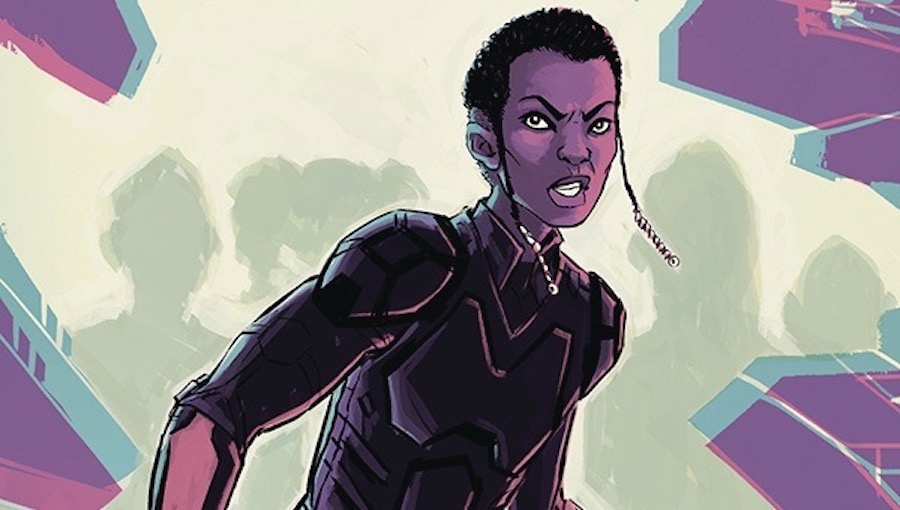One of the exciting things about Killswitch’s second issue is that we see the immediate aftermath of Regula’s betrayal and the freeing of the Augurs. Of course, the situation is much more complicated for our characters, having only a 90-minute window to escape the planet and find new lives for themselves. Plus, there is a nagging feeling at the back of my mind that there might be something bigger at play here.
This issue is titled “Choice and Consequences,” an apt name as we begin to experience the fallout of the truth that is unraveling. It’s that fallout that may serve as the basis of this entire story. Realizing what the truth is (the internment and mutilation of people deemed “other”) and acting against the norm (trying to save Augur’s) creates a catalyst of destruction, one that is excellently and brutally highlighted through the art direction of Walter Geovani and Brittany Peer.
That destruction should not be taken lightly; it’s as though everything in the world of Killswitch can only run smoothly if its inhabitants ignore the truth. Unfortunately, a society built on lies can never really stand. It’s an echo of Ursula K. Le Guin’s The Ones Who Walk Away from Omelas, a story where a thriving city full of happiness has one sin: For it to thrive, a single child must be kept in the dark, abused and filthy. In Killswitch, there’s a point where Regula talks about the consequences of every choice you make falling like dominoes, and how even if you’re not the one that set them up, you’re responsible for their collapse. Similarly, in Le Guin’s story, the citizens who can’t handle or accept the realities of their happiness walk away to places unknown. Interestingly, in the Bridges’ story, a citizen decides to do something about it.
It’s no coincidence that the consequences in Killswitch seem much more severe than Le Guin’s novel; it’s as though the Bridges couldn’t accept that people would do nothing to save the metaphorical abused child, and that’s seemingly the point of the issue: The consequences aren’t just felt by Regula, but by those who stood to the side and let the trauma continue.
Killswitch is more than an action-packed story reminiscent of Fahrenheit 451 or Equilibrium; it’s a reflection of human tragedy and the lies we tell ourselves. It’s a different take on Le Guin’s cautionary tale, and one that is exciting to read.
Creative Team: Jefferey and Susan Bridges (writers), Walter Geovani (art), Brittany Peer (colors), Simon Bowland (letters), Natasha Alterici (cover), Dylan Todd/Big Red Robot (logo)
Publisher: Action Lab: Danger Zone
Click here to purchase.

